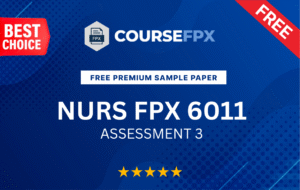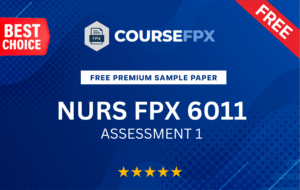NURS FPX 6011 Assessment 2
NURS FPX 6011 Assessment 2
Slide 1
I am XYZ, and I am presenting a proposal in NURS FPX 6011 Assessment 2 titled Evidence-based population health improvement plan to fight diabetes in our society through an evidence-based approach.
Slide 2
It is estimated that over thirteen million persons in California have undiagnosed diabetes or prediabetes. An additional 2.5 million persons have been identified as having diabetes. One risk factor for diabetic patients is age, and California has been found to have high prevalence of diabetes among younger people between the ages of 18 and 29 (Babey and others, 2019). Cardiovascular issues, kidney failure, end-stage hypertension, thyroid gland illness, chronic bronchial asthma, heart attack, obesity, neurological disorders, blindness, amputations, and mortality are already more likely to occur in people with diabetes (Nowakowska et al., 2019).
Diabetes is influenced by a number of environmental variables like eating habits, physical activity, pollution in the air, and walkability as emphasized in NURS FPX 6011 Assessment 2. California has a generally pleasant climate, however during the hot summer months, wildfires and poor air quality are common. People are more likely to have sedentary lives as a result of staying indoors and not going outside. Studies have previously found that places with more green space and walkability have lower rates of diabetes than areas with less. Most of California is not green, and there are areas that are not safe to walk in because of high crime rates or low socioeconomic status, which leads to poorly maintained towns; however, applying evidence-based practice in public health can help address these challenges and improve community well-being. The food that the California people eat has much to do with socioeconomic status. It is alleged that comorbidities
Slide 3
Making healthy, nutritional food more accessible to our low socioeconomic communities can assist us in enhancing the excellence of life our Californians live, but not merely making it accessible but making it reasonable. Our poorer societies and communities are in many cases forced to either pay the rent or sustain their families with nutritional resources. “The older population is one of the main groups in our local areas that finds it difficult to access our services due to a shortage of mobility, assistance, and information about lifestyle modifications that can help manage diabetes, which will be addressed through a nursing evidence-based practice project. Mobile food banks would be proposed as a health improvement scheme to our population. These will be vehicles that visit our elderly-populated regions and help the elderly with their grocery shopping. In NURS FPX 6011 Assessment 2, it is highlighted that mobile food banks could be a redeeming component of the illness prevention programs that offer lifestyle improvements through consumption. Food banks provide assistance to low-income areas that are particularly susceptible to health problems. There is a chance to combine the two in order to assist socioeconomic groups in need, as individuals who are in need and utilize the local food banks may come into contact with food bank staff more often than medical specialists (Villa et al., 2022).
Slide 4
In NURS FPX 6011 Assessment 2, it is noted that when mobile food banks are linked to medical care, the disparity that exists between lower socioeconomic groups can be avoided. The mobile food bank is a program that provides nutrient-dense foods to members of our communities who are most susceptible of acquiring diabetes and serves as one of the population health improvement strategies. A nurse or other healthcare professional goes with the food bank to do a physical checkup on those who cannot afford medical care (Villa et al., 2022).
This plan should be approved and agreed by the community stakeholders, the initial one would be the representatives of the city hall. They will assist in facilitating the assistance and funds in ensuring that this plan is a success one. Local health authorities, supermarkets, distribution hubs, and farmers are a few examples of this type of resource. We will have to visit some of the possible stakeholders, vendors, community associates, nationalists, doctors, the city health department, and the city council officials to see if they can assist with taking action in order to keep this plan moving in the right manner. After receiving approval, we will create flyers that communicate the information and mail them to our older communities, informing them of the distribution’s location, time, and services.
Slide 6
The term “evidence-based practice” is a deliberate, systematic strategy that uses the most recent, effective, and current information to address issues that improve nursing practice and result in favorable patient outcomes. Making efficient use of the healthcare funding helps to ensure individuals receive the finest care possible and acquire outcomes that will improve their quality of life. We may treat that issue and the issues that result from it once we have determined the primary health concerns. To combat multiple diseases that are common with diabetic issues, we will focus on meals that will worsen the condition and modify different kinds of food as highlighted in NURS FPX 6011 Assessment 2 (McIntosh, 2022). As part of the initiative to improve the standard of living in economically deprived communities, we will solicit community input to ascertain whether the nutrition supply is sufficient to improve the communities’ health or whether we ought to even go so far as to develop a cookbook that would help them prepare wholesome meals. As a result of patient-centered treatment and assisting our groups in improving their lifestyles, we are constantly modifying our techniques and assisting them in overcoming obstacles that we may not have anticipated as part of our evidence-based population health plan.
For NURS FPX 6011 Assessment 2, My references are as follows, thank you.
References
Babey, S. H., Wolstein, J., Diamant, A. L., & Goldstein, H. (2019). Prediabetes in California: Nearly half of California adults on path to diabetes. Policy brief (UCLA Center for Health Policy Research), (PB2016-1), 1–8.
Dendup, T., Feng, X., Clingan, S., & Astell-Burt, T. (2018). Environmental risk factors for developing type 2 Diabetes Mellitus: A systematic review. International journal of environmental research and public health, 15(1), 78. https://doi.org/10.3390/ijerph15010078
McIntosh, K., Collins, J., & Mick, J. (2022). Promoting a culture of clinical inquiry in nursing.
NURS FPX 6011 Assessment 2
Nursing, 52(9), 31–35. https://doi.org/10.1097/01.NURSE.0000854000.91255.f6
Nowakowska, M., Zghebi, S. S., Ashcroft, D. M., Buchan, I., Chew-Graham, C., Holt, T., Mallen, C., Van Marwijk, H., Peek, N., Perera-Salazar, R., Reeves, D., Rutter, M. K., Weng, S. F., Qureshi, N., Mamas, M. A., & Kontopantelis, E. (2019). The comorbidity burden of type 2 diabetes mellitus: Patterns, clusters, and predictions from a large English primary care cohort. BMC medicine, 17(1), 145. https://doi.org/10.1186/s12916-019- 1373-y
Villa, L. K., Bharathi Murugesan, S., Phillips, L. A., Drake, A. J., & Smith, N. A. (2022). Mobile pantries can serve the most food insecure populations. Health equity, 6(1), 49–54. https://doi.org/10.1089/heq.2021.0006



